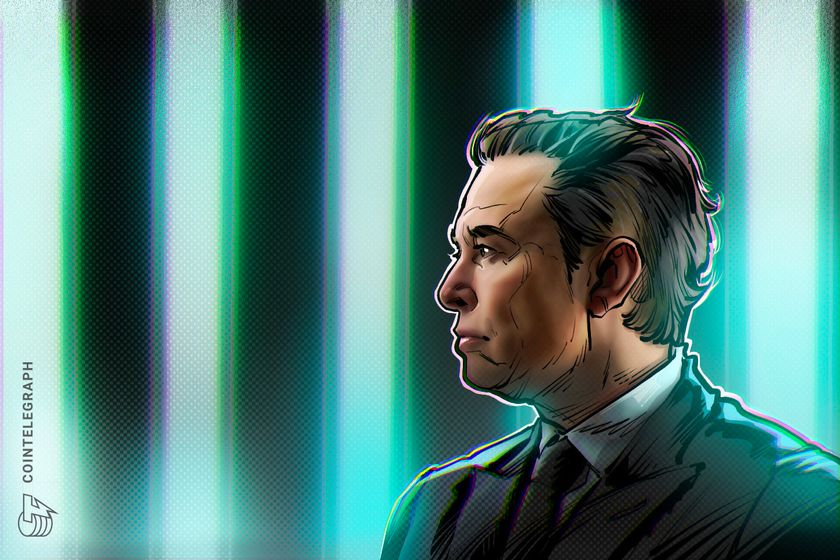
Analysis by: Executive Director, Starknet Foundation
The perspective on emerging technologies has evolved within Washington. Elon Musk, CEO of Tesla and advisor to the president, has suggested the integration of blockchain technology in the US Treasury, bringing blockchain and its potential applications in public finance to the center of international discussions. Musk emphasizes that many of his motivations stem from worries about the sustainability of current government expenditures. Blockchain, with its unalterable ledgers and clear audit trails, stands ready as a potential remedy for overseeing extensive public financial management.
Musk promotes a centralized information system capable of monitoring real-time payments, credentials, and governmental resources, igniting a discussion among fintech experts regarding the advantages and drawbacks of deploying such a system at the government level. The concept is intriguing; blockchain’s attributes promise enhanced accountability, traceability, and streamlined processes. However, transitioning to a blockchain-based government framework introduces numerous challenges that may exceed the new administration’s initial expectations.
Blockchain as a Government Tool
A significant concern among blockchain stakeholders is the immense scale of governmental operations. The US government conducts thousands of transactions daily across multiple departments. The practicality of Musk’s proposal is called into question due to its inherent complexity. The robust security demanded from blockchain technology to handle millions of daily transactions without faltering at this scale is staggering.
Musk suggests a hybrid approach using “Validium” zero-knowledge rollups. These modern ZK-rollups can efficiently process hundreds of millions of transactions every day, ensuring that each citizen’s portion of government transactions is secured and verifiable. The rapidly advancing technology suggests that such capacity could soon be a reality.
However, these advancements come with their own set of challenges, especially concerning the integration of public services, which often function in isolation.
The Human Factor
The irony in Musk’s claims regarding government inefficiency as a motivator for change might actually serve as a primary reason against pursuing this initiative. The true challenge lies not primarily in technology but rather in deeply ingrained human factors. Transitioning from outdated legacy systems to the modern framework of blockchain requires not only software upgrades but a comprehensive reeducation of the workforce. Government employees accustomed to bureaucratic processes will find it challenging to adapt to new systems, and retraining will be a significant undertaking.
Recent: US housing department considers blockchain and stablecoin for managing and monitoring grants: Report
Furthermore, existing governmental databases present a complex maze of inadequately documented and unintelligible data. The task of extracting and migrating this data to a blockchain system may necessitate substantial investment. Despite its sophistication, blockchain technology was not designed to contend with such inefficiencies. While it possesses the potential for managing intricate, decentralized systems, the internal challenges could complicate the transition more than the benefits justify.
Reconciling Transparency and Privacy
In discussing federal spending, the intrinsic strength of blockchain as a system must be considered. Its ability to allow citizens to follow public expenditure is notable. Musk’s vision could cultivate a level of accountability previously unseen, making financial transactions, power delegations, and resource distributions accessible to the public in real-time.
However, a critical issue arises concerning sensitive government data, classified details, or personal information that could be precariously exposed on a public blockchain. Musk proposes linking sensitive data to private channels within the blockchain, ensuring that only individuals with proper authorization or from specific departments can access confidential information. This concept theoretically alleviates security concerns while allowing for the verifiable nature of blockchain.
Implementing Musk’s proposition could pave the way for a more efficient and accountable governance model. The societal driving force behind this reflects long-standing critiques regarding wasted resources and mismanagement. Moreover, it could enhance democratic processes by ensuring public officials are held more accountable, empowering citizens through real-time information access.
This vision encompasses a progressive perspective. It prompts essential questions regarding the intersection of technology and human governance issues, all while signaling the potential for a profound shift in our understanding of privacy and accountable authority. As we contemplate the nature of governance, it is vital to thoughtfully assess the role of blockchain and its implications for society’s future.
Analysis by: Executive Director, Starknet Foundation.
This piece is intended for informational purposes only and should not be considered legal or investment advice. The views expressed are those of the author alone and do not necessarily represent the views of any organization.
